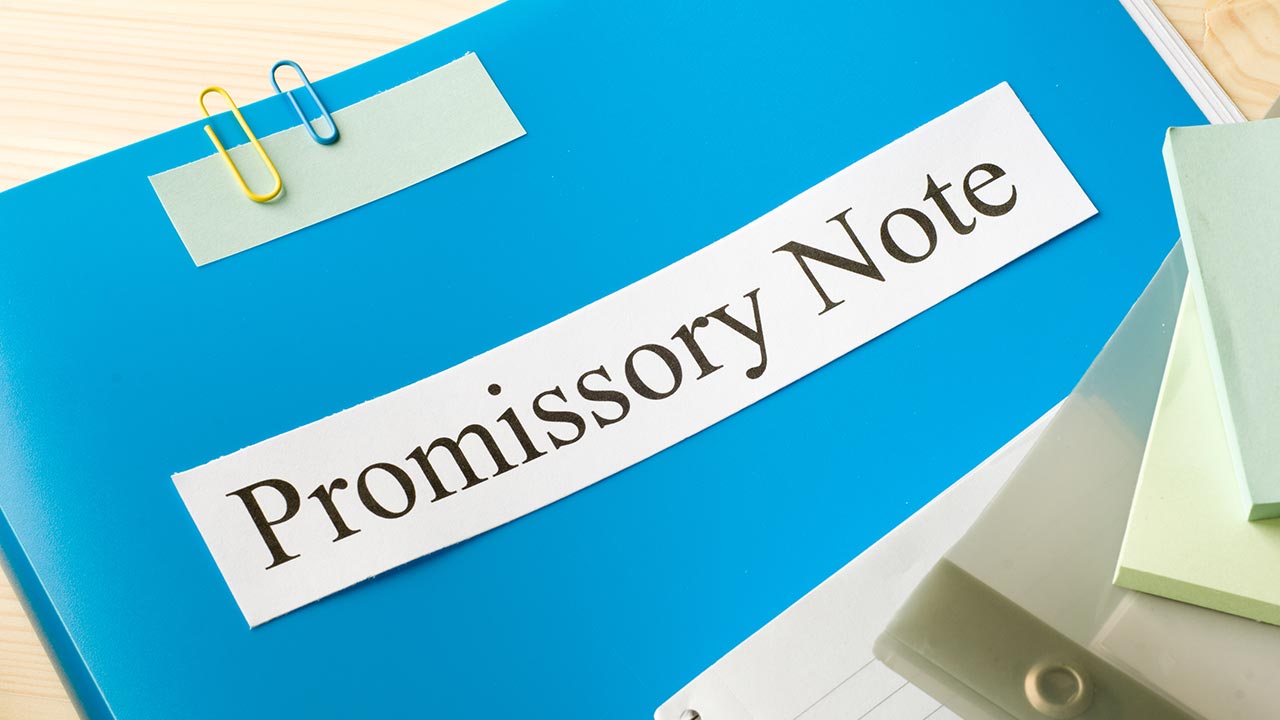What’s the Difference Between a Promissory Note and a Mortgage?

You’ve likely heard of a mortgage, but are you familiar with something called a “promissory note?” When you take out a home loan, not only will you need to sign a mortgage, you will also need to sign a document known as a promissory note. The question is, what exactly is this? Isn’t it really the same thing as a mortgage?
What is a Promissory Note?
There is a difference between a promissory note and a mortgage. Essentially, a promissory note is a legal document that you must you sign that serves as your written promise to pay your lender back the loan that is extended to you to help you fund your home purchase. They’re standard documents and are typical components of the overall mortgage process.
These documents include a variety of important information, including:
- Your name
- Your lender’s name
- Property address
- Loan amount
- Terms of repayment
- Interest rate (fixed or adjustable)
- Prepayment penalty (if there is one)
- Late charge penalty
- Term
You want to make sure that you’re not stuck with a mortgage that you are not comfortable with, which is why it’s critical for you to take the time to go through the promissory note to ensure everything is as it should be. It’s important that you’re clear about what the promissory note is, and the components that it covers.
The Difference Between a Promissory Note and a Mortgage
It’s easy to see why borrowers would confuse these two documents, considering the fact that some of the same data are included in both, such as the loan amount due and the date of the note. However, other items like the exact interest rate and the amount you are required to pay each month aren’t detailed on your mortgage. Instead, the mortgage contains information including the following:
- Your name
- Property address
- Legal description of the property
While it’s not uncommon to confuse these two documents, it’s important that this distinction is made. After all, you’re making a written promise to repay the loan amount in full at the agreed-upon interest rate, so you need to be entirely certain that you are comfortable with the terms outlined. This is NOT what the mortgage document is – instead, it’s the promissory note that is your promise to make good on your loan.
The mortgage is the actual contract that comes into play if you default on your mortgage. This contract mortgage basically stipulates that your property will serve as collateral if you default on your mortgage. If you come up short on your mortgage payments, your lender can repossess your home and sell it as a foreclosure (after appropriate notice is given) in order to get back the money lost on the loan that was extended to you.
The two documents also differ in their life span. While the promissory note is held by your lender until you’ve fully paid off your home loan, the mortgage stays with the county records for good. After your mortgage is paid off in full, the promissory note will be marked as such and given back to you.
The Bottom Line
Simply put, the promissory note is the document that includes your written promise that you will pay back the mortgage, while the mortgage is the document that outlines what happens if you fail to keep your promise. Be sure that you’re clear on what you’re signing, and ask your real estate professional or mortgage specialist to help you understand both documents before you pen your autograph on them.